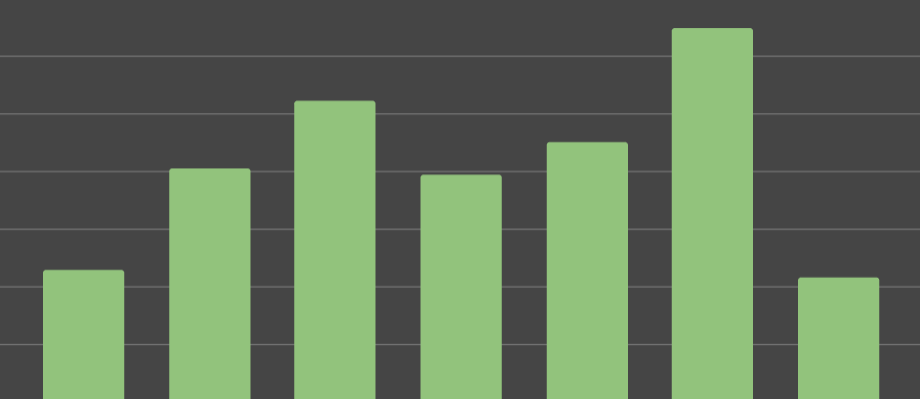TOM FRANCIS
REGRETS THIS ALREADY
Hello! I'm Tom. I'm a game designer, writer, and programmer on Gunpoint, Heat Signature, and Tactical Breach Wizards. Here's some more info on all the games I've worked on, here are the videos I make on YouTube, and here are two short stories I wrote for the Machine of Death collections.
Theme
By me. Uses Adaptive Images by Matt Wilcox.
Search
Tom’s Timer 5
8 years ago I made a little timer app to sit in my taskbar and track how long I’d worked or not-worked. I’ve used it pretty regularly ever since, and every now and then my need for some extra feature or tweak outweighs my laziness and I make a new version. I’ve just made v5. Continued

My Week
This year I’ve started tracking the hours I spend programming, because generally once I start tracking something I naturally start to optimise it. I’m not a workaholic – I’m at greater risk of not putting in the hours than of putting in too many, and I’d like to make sure I’m putting in enough.
Programming is about 40% of my job. Another 40% is design, and the other 20% is every other job on a game that isn’t art or music. The design part is hard to track though: I find most productive design thinking comes from a big engine in the back while you’re doing other things, as it randomly matches disparate ideas and sprinkles them with what you’re currently experiencing and asks: “Is that anything?”
Programming, though, I can measure: I start a timer and then focus on work for anywhere from 8 minutes to 80. If I get the urge to check Twitter, I can but I have to stop the timer to do it, and only log the work time. I only get to log the time if it really was focused work – all breaks and interruptions and meals and everything else is excluded. Back when I notionally worked an 8 hour-a-day job, I had an hour for lunch, lots of Twitter breaks and interruptions. I’d be surprised if I averaged as many as 6 productive hours a day.
Anyway, here’s my first full week’s programming time tracked: Continued

Thoughts About Praise And Confidence At GDC And Rezzed
I’ve just got back from sixteen days of travelling: first to the Game Developers’ Conference in San Francisco, then to the indie game show Rezzed in London. I was showing Heat Signature to the press at GDC and to the public at Rezzed, but events like these are also huge meetups for a bunch of geographically separated friends – and people who are very likely to become that. So it’s been more pleasure than business, and the evenings have been as hectic as the days. Continued

What’s Your Fault?
We use the phrase ‘your fault’ in a way that’s different to the sum of its parts. A fault can be any kind of problem, defect, or undesirable property. ‘Your’ just means belonging to you. If you have very unsteady hands, that’s a problem of sorts, and it’s yours. But if I hand you a full mug of coffee and you spill a bit of it, if you apologised, I’d say “It’s not your fault!”
Your faults are not ‘your fault’ if you’re born with them, if they’re forced on you, if you didn’t know about them, or a whole variety of other conditions. Language forms organically and messily, and it only makes sense to talk about it in generalisations. But the most prevalent trend I can see in the types of faults that are not ‘your fault’ is this: they’re the ones you can’t reasonably change. Continued

Not Being An Asshole In An Argument
I don’t argue on the internet anymore. The short version is: it usually gets hostile, and that drives everyone further away from changing their minds.
But I spend a lot of time thinking about whether there’s a way to contribute to a discussion without derailing it. Whether there’s some way of knowing, in advance, that what you’re about to say will make you look like an asshole, start a fight, or be outright wrong.
I think there is. Continued

Understanding Your Brain
My last post about happiness was about why success isn’t a good way to be happy, and three things that are.
In the comments, Johannes Spielmann said this:
Johannes: Great article!
For a more nuanced (and scientifically proven) view on the topic, have a look at this Google Tech Talk by David Rock.
The video he links, the one I’m about to embed, has changed the way I think. It’s like being given the owner’s manual to your brain after 29 years of muddling along with the default settings. It’s not only spectacularly improved my understanding of how people behave and why we feel what we feel, it’s actually made me more consistently happy. Continued
Analysing Happiness
This is a series of reminders to my future self about what I’ve figured out about happiness. The gist of the last one was basically this:
The reason we want things isn’t that they’ll make us happy.
Often, getting what you want does give you a little rush of happiness. We can be fooled into thinking this is the sensation of having that thing. In fact, of course, it’s the sensation of getting it. We are feeling the change in our status, not its new level. Which is why it fades. Continued
Advice
This section of preaching is directed at me rather than you, but I want to write it publicly to force myself to make sense. I’ll probably include some irrelevant music or photos with each post to distract you in case you get bored – this one’s the first big win of 2011’s adventure into the music other people discovered in 2010. Continued